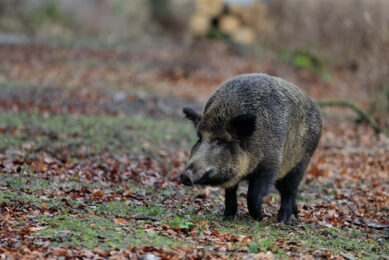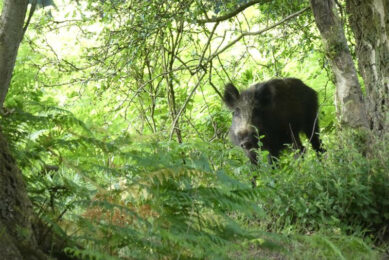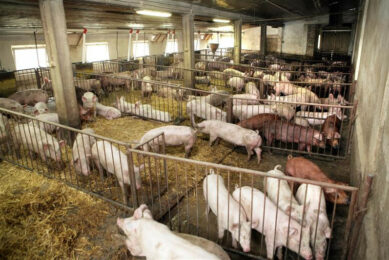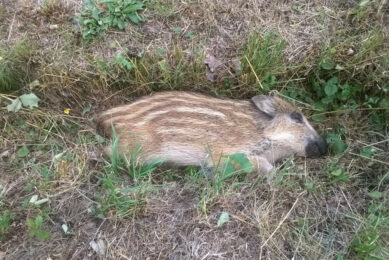ASF Estonia: Tough decisions on the table
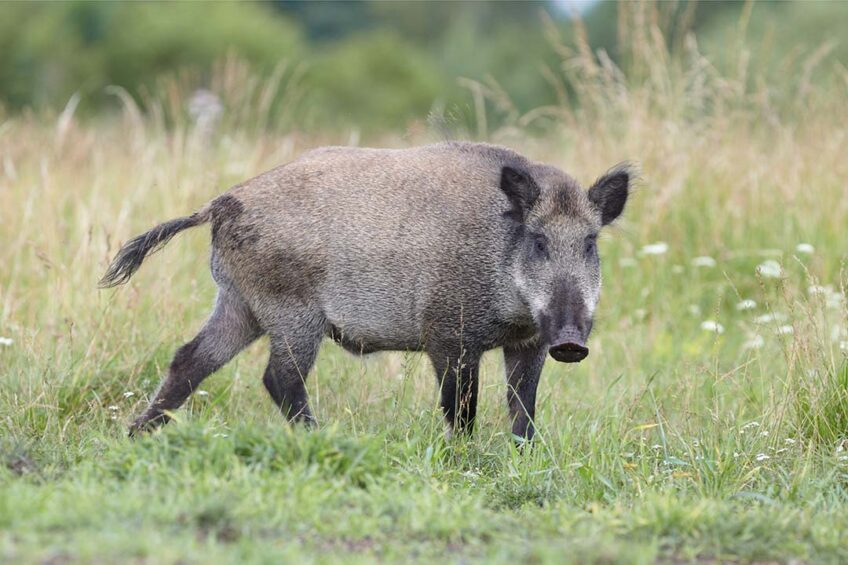
Estonia’s authorities plan to decimate 60% of the wild boar population in the country in an attempt to curb the spread of African Swine Fever (ASF), as the financial toll of the disease puts pressure on the government’s budget.
Estonia and Latvia have embarked on a campaign to reduce the wild boar population. The Estonian government has approved a plan to kill 15,000 wild boar from the total population of 25,000.
3 head per 1,000 ha
Margo Tannik, a spokesperson for the Estonian environmental department, explained that this is a forced measure needed to lower the wild boar population to 3 head per 1,000 ha. She explained that this level would constrain the further spread of ASF in nature.
15 ASF outbreaks among wild boar in Estonia
A similar plan is considered in neighbouring Latvia, local news outlet Gorod reported. Over the past few weeks, Estonia has registered 15 ASF outbreaks among wild boar. Some of these cases happened near the Latvian border, the Estonian Union of Hunters reported.
In previous years, plans to lower the wild boar population in the Baltic countries faced stiff resistance from local environmentalists. They warned that such steps could entail harsh consequences for the biological diversity.
Wild boar meat consumption
In September 2023, a group of Estonian pig farmers, meat processors, and hunters called the authorities to soften the ban on selling meat from wild boar to meat processing plants. The restriction put the breaks on the wheel of the government’s anti-ASF campaign.
Marco Hiemäe, member of the board of the meat processing company Linnamäe Lihatööstus, said, “Every day, we hope there will be some announcement that the ban will either be relaxed or lifted. We would be happy to process wild boar meat and find new markets for it. But since the ban was imposed on the state level, we, unfortunately, cannot do this.”
Seeking compensation
The Estonian government seeks funds to cover losses suffered by pig farmers due to ASF outbreaks in 2023. Several outbreaks at industrial farms were registered in the country last year. After the biggest outbreak, around 9,000 pigs were culled.
In Estonia, the government compensates the farmers for the cost of pigs, feed, and other products destroyed during measures aimed at fighting ASF. However, the Estonian Regional Development Ministry has recently warned that it lacked the € 1.2 million to pay farmers for the 2023 outbreaks.
The Estonian ministry of Finance insisted that the regional development ministry’s budget be rejiggled to obtain the necessary funds. However, the regional development minister, Madis Kallas, said that the required money should come from the state reserve fund.



